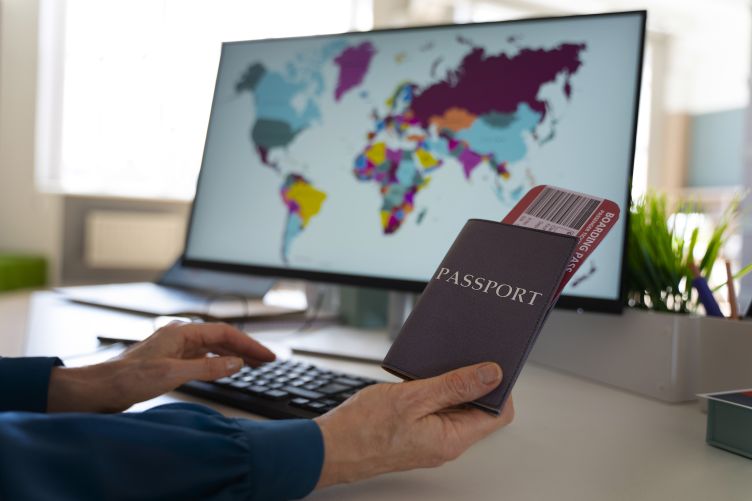
Everyone wants easy, hassle-free, and budget-friendly travel. With online booking accessibility and a wide range of options, this has become way easier. But, with the ease, comes the haunt. What if you accidentally fall victim to an online travel fraud? Yes, you read it right. Online scams do not restrict themselves to phone calls, suspicious links, or phishing emails. There are fraudulent travel websites, where we fall into the trap of offers, discounts, and whatnot, forgetting to check the necessary details. And this bait can rob you of your hard-earned money. The webpage on which you book your tickets might not even exist later. Even if you book for any kind of adventure or experience there, the tickets might not be recognized. Not only commoners, but even celebrities have fallen into this bait.
 Beware while making online bookings, especially during an international trip (Image source: Freepik)
Beware while making online bookings, especially during an international trip (Image source: Freepik)
Many third-party websites are operating outside the radar of formal channels. This is prevalent in nations that have strict laws and public safety regulations. To save yourself from such online fraud, here is all you can do:
Unusually low prices and heavy discounts: While booking, you might come across some really unusual prices that are seemingly hard to believe. Or some discount packages that are simply too much. This is a red flag that one must be cautious of.
These attractive offers and deals are to lure visitors to grab them. Just not to 'miss' such a deal, they make impulsive bookings without checking, and get cheated.
No proper contact details: You will find that these websites lack proper contact information. There might be an unverified contact available, which is out of reach.
Failed customer support system: There is no proper professional customer support system on these websites. When contacted, it might not be available or respond to your queries.
If it is a trusted website, it will have a verified contact number, clear and transparent refund policies, along with proper cancellation terms.
One must also be careful if the website only uses chat apps or a generic email address to communicate.
Not registered: If the website is not recognized by the local tourism board or authorities of the region, then it is not worth trusting. The licensed travel companies are listed by the Tourism Board. Look for their affiliation certificates and badges.
Firstly, one has to be a little extra cautious if the website demands a complete advanced payment. And that too, through insecure methods, without issuing an e-ticket or a formal confirmation in return.
One must also check for independent reviews available. If you find them genuine and give real feedback, then only proceed further to make payment.
In case you are scammed, or fall trap of a fraudulent website, firstly, do not panic. Here is what to do next:
Report the transaction to your bank or credit card provider as soon as you can. You may get a chargeback, or it can be blocked.
Do not let it go away easily. Get the incident reported to the local police. If the cyber cell is active, they might begin an early investigation.
Make sure you have some proof, such as any receipts, screenshots, emails, and other records that can help the police.
If it is an international trip, then you can consider informing the local embassy or consulate, especially if any identity documents or a large sum of money is at stake.
Everyone is smart and aware, yet the fraudsters find some other way to con or cheat. Make sure not to fall victim to such acts. Check and double-check every time you make online bookings, and then only move forward with payment. And do not forget to do the necessary after being scammed.